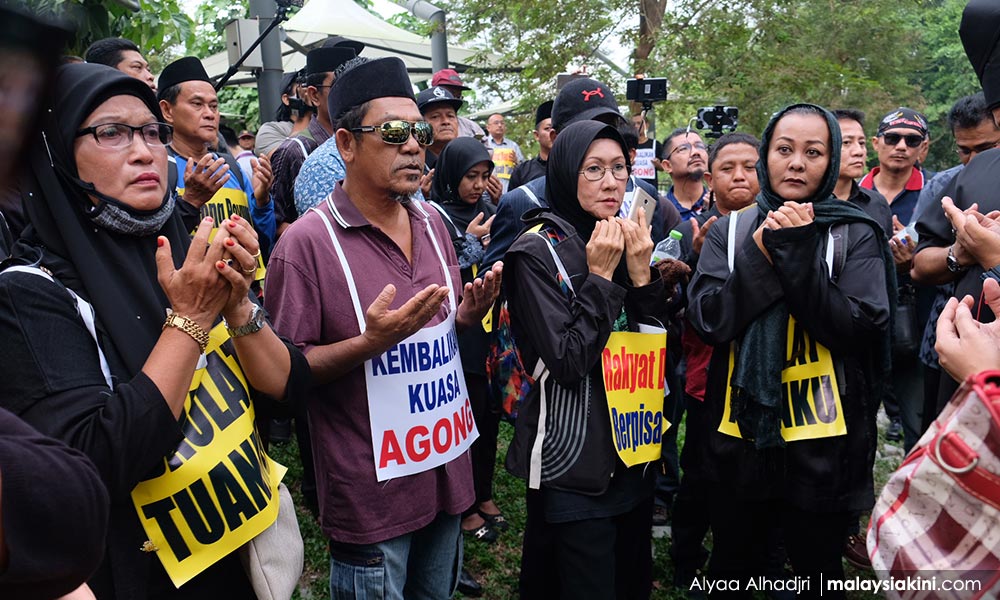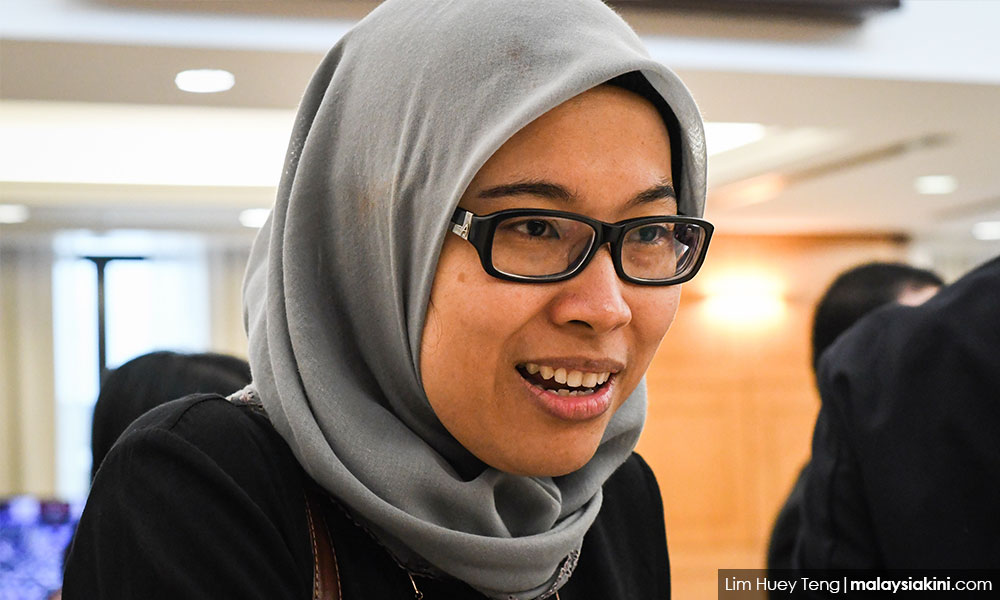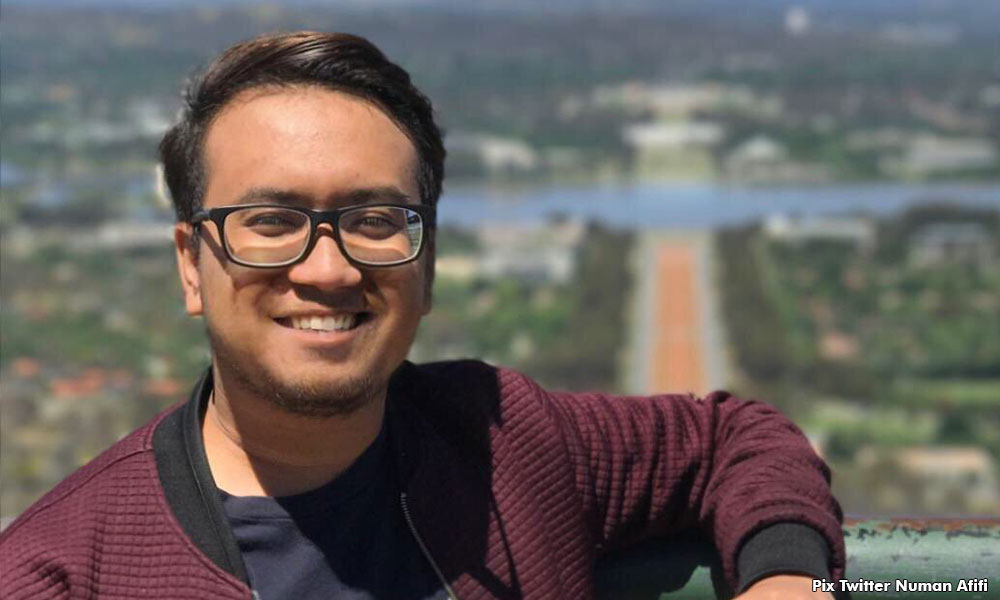
100 DAYS | After the rakyat ended BN’s six decades of power following the 14th general election, the impetus to vigorously debate policies and social issues saw a rejuvenation of sorts.
Civil society enjoyed greater freedom and this manifested itself through a more strident voice expressing higher expectations for the new government.
No surprise then that the biggest change brought about by the Pakatan Harapan administration was the enhancement of freedom of speech, said Aira Azhari, research coordinator for think-tank Institute for Democracy and Economic Affairs (Ideas).
She observed that Malaysians now are more enthusiastic about discussing social and political reforms and are wrestling topics which have rarely been discussed in the past.
“Malaysians are braver now to talk about issues like whether the affirmative action is the best way to help the Malay. We also have discussions about whether we should rewriteour history textbooks and the relationships between politics and monarchy. These are some important issues that I think that should be discussed.”
However, with more space for free speech, the gap between the various communities has gradually emerged. Being caught in the middle, the new government is now facing a new puzzle of how to deal with criticism and social controversy.
Political analyst Phoon Wing Keong pointed out that the Harapan government is not able to suppress speech by using an iron fist in keeping with their claim that we are now living in a “new Malaysia”.
Thus, it is an unprecedented test for the new government to reconcile different ideas and positions in public.
“In order to show that they are more liberal or moderate, the new government must, of course, allow different voices to flourish and not suppress free speech in the way practised by the previous government. Also, they are not supposed to use the Sedition Act to restrict or eliminate different opinions,” he said.
However, within the first 100 days of the so-called “new Malaysia”, some individuals have been hauled in by the police for investigations under Section 233 of the Communications and Multimedia Act (CMA) and the Sedition Act – two laws among those which Harapan vowed to abolish if it came to power.
Police arrested a man for insulting Prime Minister Dr Mahathir Mohamad under Section 233 of CMA during the first week of Harapan’s administration while activist Fadiah Nadwa Fikri was called for questioning under the Sedition Act for her articles on the monarchy.
Aira said although the public debate has become livelier, it was disappointing that the new government responded to this in such a harsh manner.

“Fadiah (above) was called and questioned by the police under the Sedition Act […] that’s not cool,” she lamented.
“The new government promised to abolish oppressive laws like the Sedition Act. I think this is a bad start for the government. I think they should just simply provide space for the public to discuss different issues and lessen the culture of fear to speak up about these things,” she added.
Cognitive gap shows
In total, the Harapan had promised to abolish Sedition Act 1948, the Prevention of Crime Act 1959, the Universities and University Colleges Act 1971, the Printing Presses and Publications Act 1984, the National Security Council Act 2016, the Anti-Fake News Act 2018 and the mandatory death sentence.
To date, only the Anti-Fake News Act 2018 has been repealed.
Aira stressed the new government should stick to its promise to eliminate oppressive laws which curtail public space for discussions.
“But at least, the current government is being more open with the civil society organisations and the people. I think that is an encouraging start and they should continue this,” she added.
Several reports have claimed that Harapan won the polls with only a 25 to 30 percent Malay support. They say it is now facing two main opposition parties which are based on race and religion and it would difficult for Harapan to maintain its position of being "inclusive and progressive".

This conflict between conservatives and liberals were first seen when activist Numan Afifi’s (above) resigned following pressure over his apparent hire as a press secretary for Youth and Sports Minister Syed Saddiq Syed Abdul Rahman.
On the other hand, the controversy involving the United Examination Certificate’s (UEC) recognition also revealed the cognitive gap between the Malay rights groups and the Chinese education movement.
Political analyst Wong Chin Huat said that while the new government had the obligation to fulfil their promises, he was of the view that the will of the people was more important.
In other words, he said, while implementing their promises, Harapan should not ignore the voice of public opinion.
“When dealing with their controversial promises, the ruling party should not proceed in haste and at the same time, they can’t simply pull back after learning of the difficulties. Instead, they should resolve dissent and build consensus in a soft and flexible way.”
Wong believed that the implementation of any policy was inseparable from the will of the people. Therefore, he suggested that all stakeholders and the government should pay attention to changes in public opinion and make good use of opinion polls before promoting national policies.
“I think that lobbying using surveys of public attitudes may become more frequent in the future,” he opined.
Meanwhile, the Committee for Institutional Reforms formed by the new government has met with numerous interest groups to obtain public feedback. There have been also various special committees set up under the ministries to study a range of issues and engage with stakeholders.
When opposition leaders and civil society questioned Harapan’s delay in the implementing their reform agenda, the new government often explained that these were still under study.
Phoon pointed out that issues involving ideology, identity, cultural equality and ethnic equality were often tricky for a new regime. He is optimistic, though, that at least the new government was more willing to discuss matters with critics than the previous one.
“Overall, the new government is more willing to communicate compared to the former […] they are more open to engaging with the public, civic groups, the media, and stakeholders.” - Mkini



No comments:
Post a Comment
Note: Only a member of this blog may post a comment.